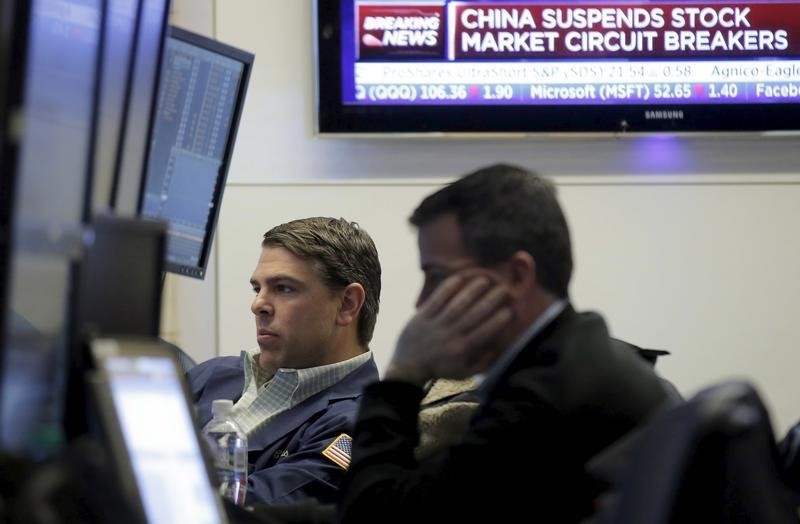By Howard Schneider and David Lawder
WASHINGTON (Reuters) - The Federal Reserve was closely monitoring the sell-off in stocks that shook world markets on Thursday, while U.S. Republican presidential candidates took aim at Chinese policies they claimed are designed to gain a trade advantage.
U.S. lawmakers, meanwhile, were uncharacteristically silent about a further deterioration in the value of China's currency, after the yuan
Ohio Governor John Kasich and U.S. Senator Marco Rubio of Florida, both Republican contenders for the White House, said the recent dive in the value of the yuan against the U.S. dollar was ultimately about making the country's exports cheaper.
"They're now rapidly trying to goose up exports," Rubio told reporters on the campaign trail in New Hampshire.
China last year gave markets a greater role in determining the yuan's value, a shift welcomed by the International Monetary Fund and others that have urged the world's second-largest economy to let its currency float more freely.
But when China allowed the biggest fall in the yuan in five months on Thursday, it undermined regional currencies and sent global stock markets (MIWD00000PUS) tumbling, with investors taking it as a sign of economic weakness and further devaluation to come.
Shanghai <.SSEC> stocks slid 7.3 percent before authorities halted trading for the second time this week.
Though China has moved to make the yuan's value more broadly market-based, linking it to a basket of currencies rather than the dollar, "there remains considerable confusion in the market about what policy-makers' true intentions are," said Charles Collyns, chief economist at the Institute of International Finance.
Analysts noted at a U.S. trade policy forum in Washington on Thursday that Chinese officials apparently have been trying to keep the yuan from sliding too fast, as evidenced by China's foreign exchange reserves falling. That would be the opposite of what would be expected in a "currency war" aimed at gaining an export advantage.
With the U.S. dollar continuing its strong rise, "one could argue that the manipulators have had no need to manipulate," C. Fred Bergsten, former head of the Peterson Institute for International Economics, said at the forum convened by the U.S. House of Representatives' tax and trade committee.
Collyns and others estimate the People's Bank of China spent $108 billion of foreign reserves in December to prop up the yuan against the set of currencies it now uses as a yardstick.
FED WATCHING: EVANS
The slowdown in Chinese economic growth and the volatility in its stock and currency markets could complicate the Fed's debate about how fast to hike interest rates, following the U.S. central bank's decision in December to begin a gradual tightening of monetary policy.
But Fed officials on Thursday said the equities sell-off in Shanghai and slower economic growth in China may in the end have little impact on the U.S. economic recovery.
A second U.S. rate hike is not expected until March or April.
Chicago Federal Reserve President Charles Evans told reporters after an appearance in Madison, Wisconsin: "Because the U.S. economic fundamentals are still pretty good, that would be the important factor for our forecasts ... We are going to be clearly monitoring the global situation."
The slide in Chinese and other foreign currencies against the U.S. dollar has already hurt U.S. exporters, and Evans said events in China this week are another argument for the Fed to go slow.
The Fed worked through similar global market turmoil last year when a market sell-off in China triggered a fall in U.S. stocks, prompting the Fed to hold off on a widely expected interest rate rise at its September policy meeting.
There are "lingering concerns" within the Fed about China, according to the minutes from its December policy meeting, which were released this week. In particular Fed officials are watching to see if a slowdown there effects U.S. economic growth and employment or if it pulls down global inflation and keeps the Fed from reaching its 2 percent inflation goal.
China's currency policies have been a longstanding source of friction with the United States. Legislation recently approved by the U.S. House of Representatives would clamp down on trading partners' currency manipulation, but the measure still must be approved by the Senate.
An aide to Senate Majority Leader Mitch McConnell on Thursday provided no timetable for a vote by that chamber.
